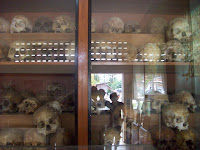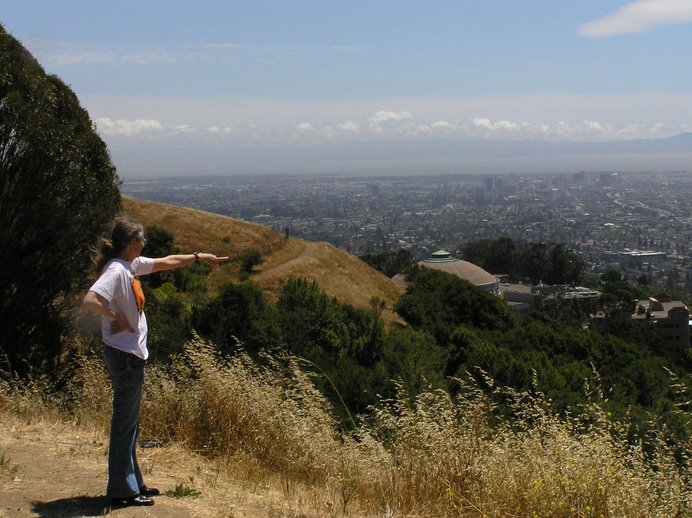




Gaza's 9-11: When fighting back isn't an option
(I am currently in Cambodia and took these photos of some of the Killing Fields displays in Phnom Penh. They are a sad reminder of what horrors mankind is capable of committing and a powerful incentive for every man, woman and child in the world to work for peace -- starting right now!)
When the World Trade Center was destroyed, Americans did everything they could to protect themselves.
When Spain's transit system was bombed, everyone throughout the world mourned.
When Britain's subways were attacked, the world stood back in shock and measures were taken.
Even Kosevo got protected. Even Somalia got aid from world organizations. Even Darfur was not begrudged the right to protect itself.
But after over 60 years of having endured attack after attack after attack after attack, Palestinians are still being scolded for trying to attempt to defend themselves and being told not to fight back.
Where's the justice in that?
Where's the international sympathy, where's the international help?
New York gets protected, Spain gets sympathy, Britain takes action. But Palestine? 100 tons of bombs are dropped on the world's most densely-populated city and the world appears to be applauding these gristly, brutal and ghastly results of Gaza's 9-11. And if the people of Gaza dare to protect themselves or to fight back, they will be carpet-bombed, will be exterminated like fish in a barrel.
****
To learn more about the background of the Gaza situation, please read David Pratt's excellent (and easy to read) book "Intifada: The Long Day of Rage," available at http://www.amazon.com/INTIFADA-Palestine-Israel-Long-Rage/dp/1932033637 -- or read the chapter on Israel and Palestine in my own book, "Bring Your Own Flak Jacket: Helpful Tips for Touring Today's Middle East," available at http://www.amazon.com/Bring-Your-Own-Flak-Jacket/dp/0978615719/ref=sr_1_1?ie=UTF8&s=books&qid=1230687808&sr=1-1.
The brutal occupation of Palestine is still the root of tensions in the Middle East -- and has been since 1946.

